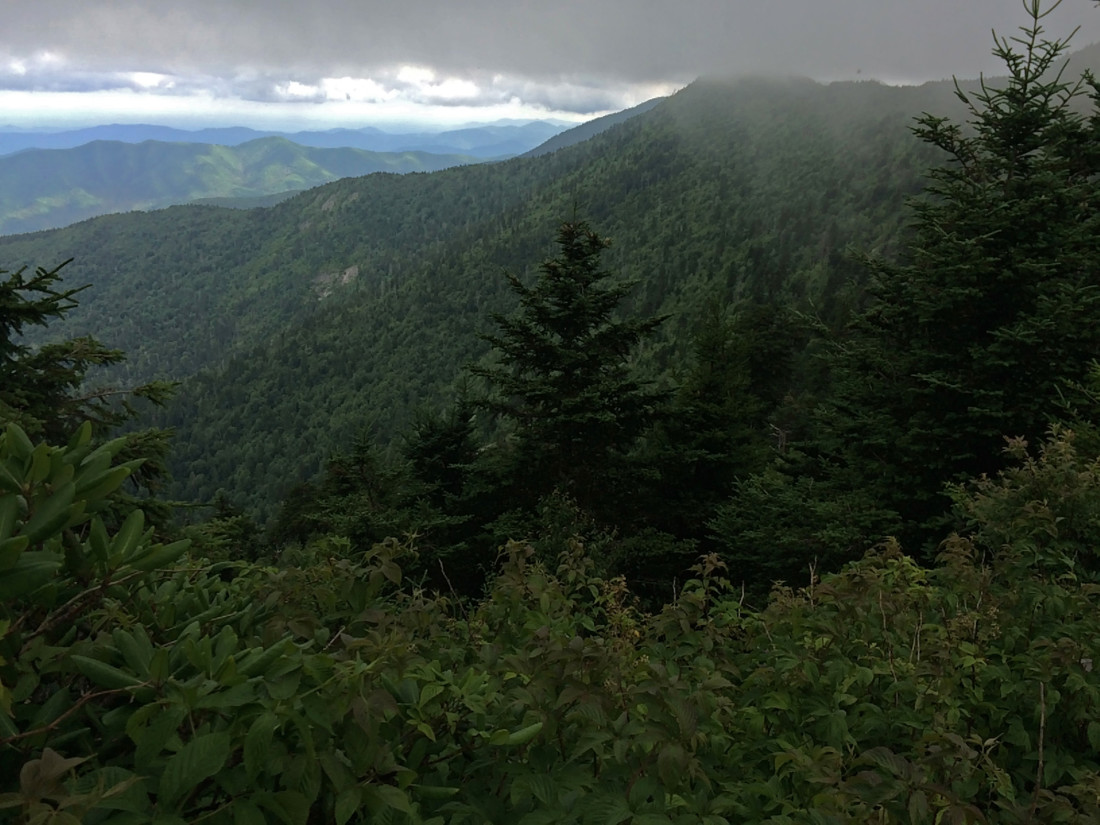Mountain Xpress has done a great job covering the concerns of many Asheville residents about tree removal in the city (as in the Sept. 28 article “If a Tree Falls in the City: Residents Push to Update Asheville’s Tree Ordinances.”) As was the case with the large sycamores recently removed from the Country Club of Asheville, the loss of old, specimen trees along well-traveled corridors is often startling and heartbreaking. These trees and the city’s ordinances and regulations to protect them certainly merit investigation and close consideration, and it is inspiring to see how many people care passionately for them.
Outside of the view of most Asheville residents lie 1.1 million acres of public land in the Nantahala and Pisgah national forests, and these trees need our time, attention and voices, too. They face an uncertain future under the new forest management plan currently being created by the U.S. Forest Service. Though the forest plan revision is a long, complicated process, it will ultimately decide the future of these lands that belong to all of us. It is our responsibility to pay attention and engage to ensure that the special places that exist in our region receive adequate protection in this new plan.
An important step in the forest planning process occurred this summer when the Forest Service released its evaluation of lands that may be eligible for wilderness recommendation in the new plan. In Western North Carolina, there are over 350,000 acres of lands inventoried for their wilderness characteristics, including places like Craggy/Big Ivy, Mackey Mountain and the Black Mountains. They provide opportunities for nonmotorized recreation, such as hiking, hunting and camping, protection for old-growth forest, rare and threatened species and more.
Unfortunately, the evaluation released by the Forest Service reduces the total acreage eligible for wilderness recommendation in the new forest plan by more than 80 percent. If unchanged, this could prevent some of our region’s most pristine wild lands from being recommended for wilderness designation, i.e., permanent protection.
Making sure the special qualities of these areas are recognized now will help protect them within the plan, and the Forest Service is accepting public comments on the evaluation. I implore those who care deeply for trees to also raise their voices for our national forests.
For a full list of key areas and guide to making comments, visit ncmountaintreasures.org.
— Kathy Kyle
Hendersonville



many pardons if my post is duplicated here, the site is acting funny.
I predict Mountain X’s ‘Awesome Upcoming Unaffordable Luxury Hotel Roundup’ issue next year will feature the same pic but with CGI removing the trees and showing tacky hotels dotting the mountainside courtesy of the McKibbon Group if McCrory is re-elected.
Meanwhile, WNC locals will finally find infamy after they select a ‘local flavor’ (or unemployed actor from Brooklyn) type of guy to make an online ad featuring him in a Skoal baseball hat trying to find a tree to hang a tire swing for his kid and a single tear rolling down his cheek, like the (Italian actor) American Indian from the 70’s .
How much rampant over-development will it take before we say enough?
And no, I don’t like it, and no, I don’t intend on moving.
I forgot- next years “Awesome Upcoming Unaffordable Luxury Hotel Roundup” issue will also gush and fawn over the pretty views from said new hotels and all the restaurants featured in said hotels featuring fusion, artisan, and locally grown food and a yoga studio in house to work off those calories before sampling the carab/arugula/spiced microbrewed beer (onsite).
Thank you for writing this piece and helping to educate the people. On a side note it is important to know that the USDA oversees the Forest Service- essentially treating this pristine land as not something to be preserved but rather for other more capitalistic purposes including biomass extraction for energy…
Harvested trees are mainly used for production of building and paper products, not energy production. Waste and smaller trees that are not used for pulp are pelletized for energy production.